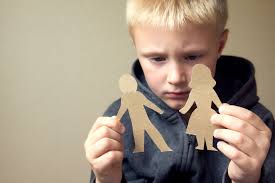Gaining evidence of Domestic Violence or Domestic Abuse
To be considered for Legal Aid, it is usual practice to provide evidence that you or your children are or have been at risk of harm from a current or ex-partner. In addition, the disclosure of any injuries or conditions caused by Domestic Violence or Abuse it may also be necessary, e.g. a letter from the police or your GP.
Other bodies you can gain evidence from include:
- The courts
- A multi-agency risk assessment conference (MARAC)
- Social services
- Health professional, e.g. a doctor, nurse, midwife, psychologist or health visitor
- Refuge manager
- Domestic violence support service
This evidence can then be given to your Legal Aid Solicitor.
Suppose you have been a victim of Domestic Violence or Domestic Abuse and require a Non-Molestation Order, or you want to start Divorce Proceedings. In that case, our specialist Family Law Solicitors are here to help you.
What is the definition of Domestic Violence and Domestic Abuse?
Domestic Violence and Abuse can be defined as ‘any incident or pattern of incidents of controlling, coercive, threatening behaviour, violence or abuse between those aged 16 or over who are or have been intimate partners or family members regardless of gender or sexuality. The abuse can take many forms, including:
- Psychological
- Physical
- Sexual
- Financial
- Emotional

Controlling Behaviour – Included as Domestic Abuse.
This type of behaviour can be a range of acts with the sole purpose of making someone dependent by isolating them from any potential support. Controlling behaviour may act to exploit resources and capacities for personal gain, depriving an individual of their independence, resistance and escape and regulating their everyday behaviour.
Coercive behaviour – Part of the Domestic Abuse behaviours.
This type of behaviour may include acts such as assault, threats, humiliation and intimidation or other abuse used to harm, punish, or frighten the victim. – If any of this sounds familiar, there is no need to suffer in silence; contact us today for help and assistance.
Non-Molestation Orders can be used to protect you.
Non-Molestation Orders are civil court orders used to protect victims of Domestic Violence or Domestic Abuse from being abused. The purpose is to prevent violence from the abuser, either physically or verbally. It is a type of injunction made under The Family Law Act 1996 to protect named individuals from abuse.
Breaches of Non-Molestation Orders can result in arrest and the potential sentence of up to five years in prison.
Obtaining a Non-Molestation Order to stop Domestic Violence.
Non-Molestation Orders can only be brought against the following people:
- Marital partner, or someone you are in a civil partnership with or are engaged to
- Someone you are currently living with as a husband or wife
- A family member or relation
- Someone you have a child with or someone with who you share parental responsibility with
- Someone you have had been in an intimate relationship with.
- In cases where you feel like you are in danger and need immediate protection, you can apply for a Non-Molestation Order ‘without notice’.
Contact one of our Family Law Solicitors today if you feel like you or your children are at risk, and we can advise you on the best course of action.
Non-Molestation Order Enforcement
To enforce an order, this must be delivered to the abuser, and the local police need to be given a copy to be aware of its existence.
Ignoring or breaking a Non-Molestation Order is a criminal offence, meaning sentences can be imposed if the order is disobeyed. If this happens, you can decide whether the incident is brought back to the family court or whether you go down the criminal court route.
The court will look at numerous factors before deciding whether to make an injunction. Our Solicitors will advise you on the likelihood of a successful application. However, it’s worth noting that injunctions operate for a specified period of time and that you may need to make further applications if/when they run out.
Any behaviour from an ex-partner which causes you to feel intimidated or harassed warrants the application of a non-molestation order.
Many think you need to have experienced violence to apply for this, but this is not the case. Often the courts will require evidence that you are being harassed or intimidated to grant a Non-Molestation Order.
We understand the stress and difficulties of applying for Non-Molestation Orders against current or ex-partners. Still, the experienced Family Law Team at Abbey Solicitors have the knowledge and experience to decide on the best course of action for your situation.

